
Saturn and the Earth compared (800x533) Saturn, Cosmos
Saturn Earth (Saturn/Earth) Equatorial radius (1 bar level) (km) Polar radius (1 bar level) (km) Volumetric mean radius (km) Ellipticity (Flattening) Mean density (kg/m Gravity (mean, 1 bar) (m/s Acceleration (eq., 1 bar) (m/s Acceleration (pole, 1 bar) (m/s Escape velocity (km/s) V-band magnitude V (1,0) Solar irradiance (W/m

FileSaturn, Earth size comparison.jpg Wikimedia Commons
Saturn, the sixth planet from the sun, is known for its spectacular atmospheric storms, which shape the planet's weather and give it a unique appearance that sets it apart from other gas giants in our solar system. These storms are massive and long-lasting, spanning thousands of miles and persisting for weeks or even months.
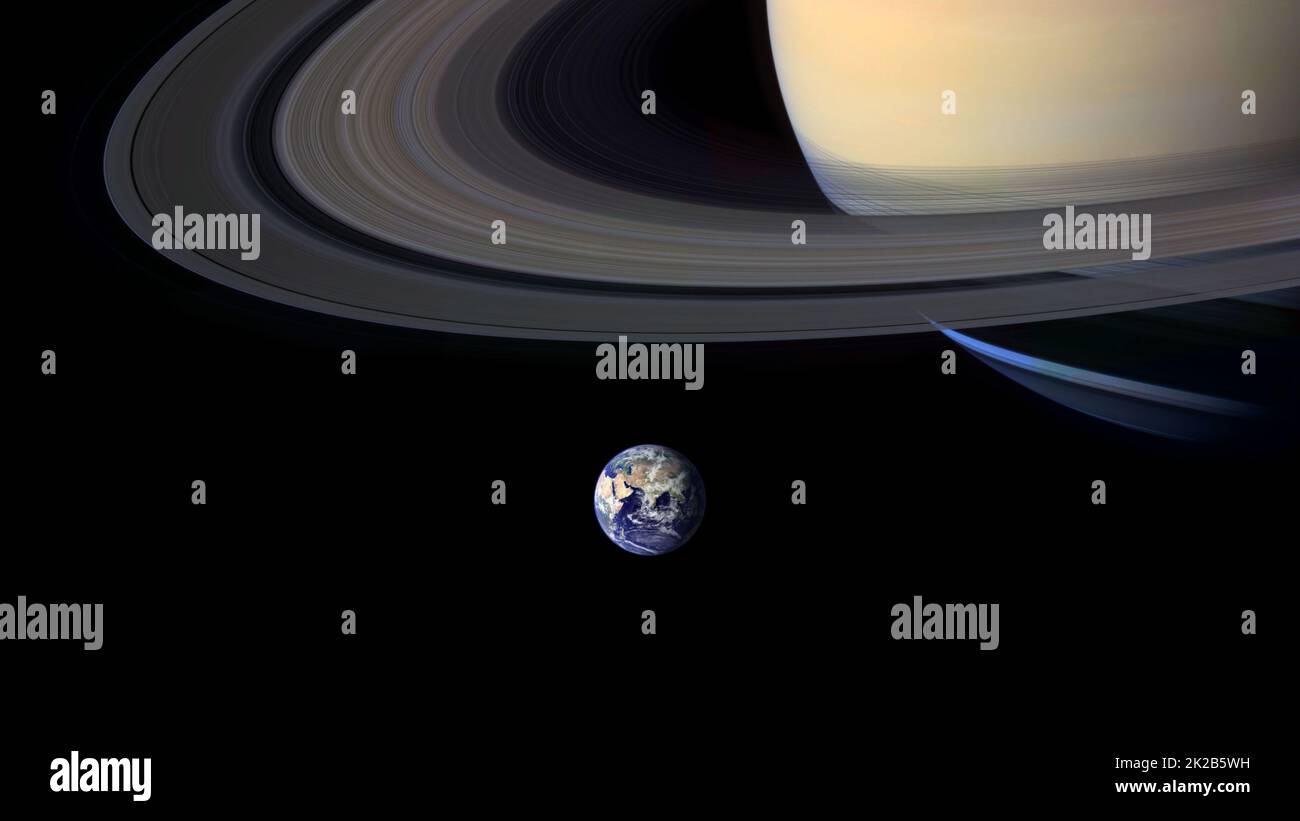
Accurate size comparison of Earth and Saturn. of Solar System Stock Photo Alamy
Planet Compare Units of Measure: NASA's real-time science encyclopedia of deep space exploration. Our scientists and far-ranging robots explore the wild frontiers of our solar system.

Earth Compared To Saturn Illustration Stock Illustration Getty Images
Saturn has 82 moons and is the 6th farthest planet from the Sun whilst Earth is the 3rd farthest planet from the Sun with 1 moon orbiting it. There are numerous other differences between Earth and Saturn so, continue reading if you want a more detailed look at each planet, their similarities and a more thorough breakdown of their differences.
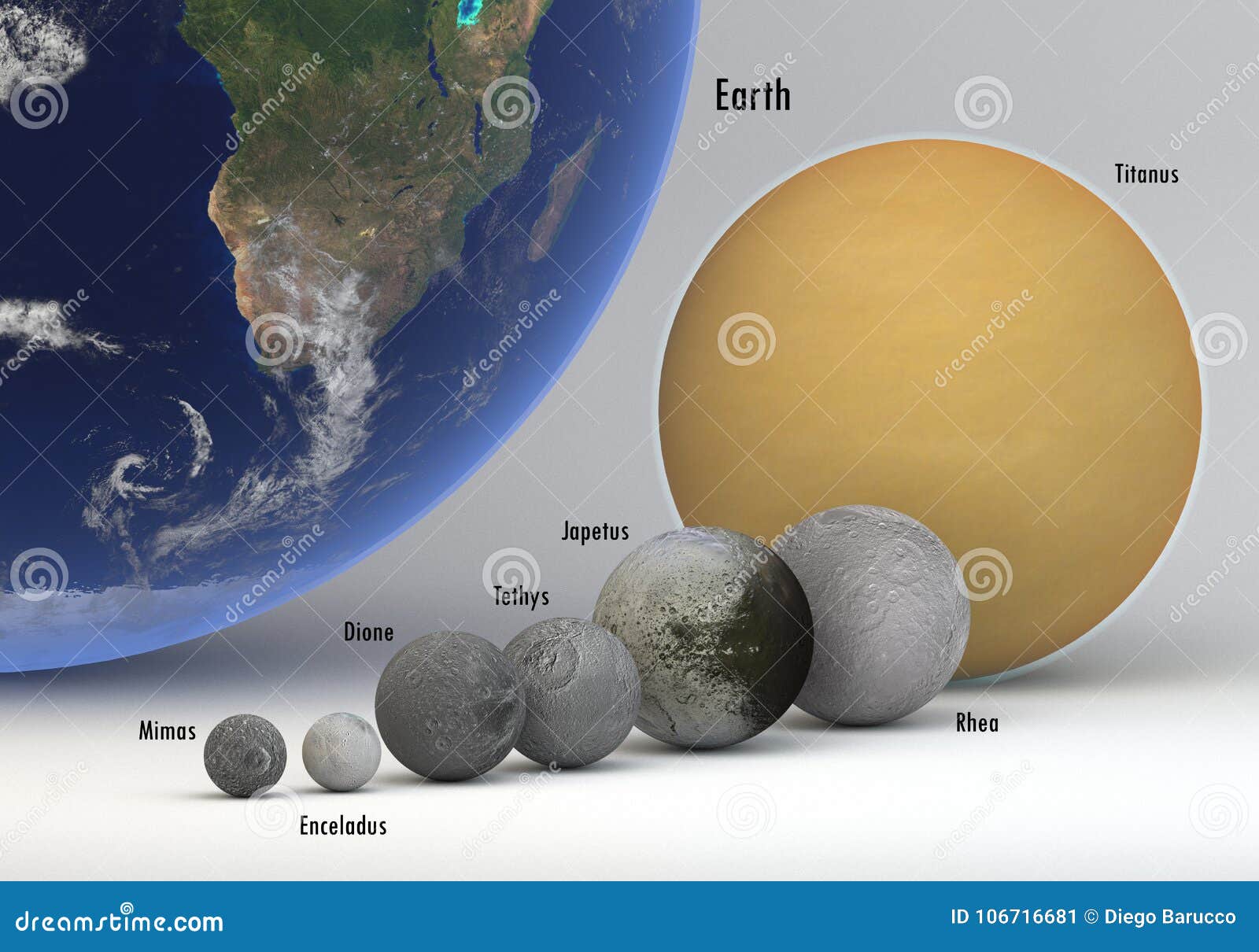
Saturn Moons In Size And Earth Comparison RoyaltyFree Stock Image 106601500
The biggest difference between Earth and Saturn are the gases that make up their atmospheres. Earth's atmosphere consists of approximately 78 percent nitrogen and 21 percent oxygen, with other trace gases making up the difference. Saturn's atmosphere, on the other hand, is approximately 96 percent hydrogen, with around 4 percent helium and.

Comparison of sizes of Saturn, Earth and Jupiter Stock Image R300/0012 Science Photo Library
The farthest planet from Earth discovered by the unaided human eye, Saturn has been known since ancient times. The planet is named for the Roman god of agriculture and wealth, who was also the father of Jupiter. NASA's Eyes is a real-time visualization of our solar system powered by actual planetary science data. NASA/JPL-Caltech.
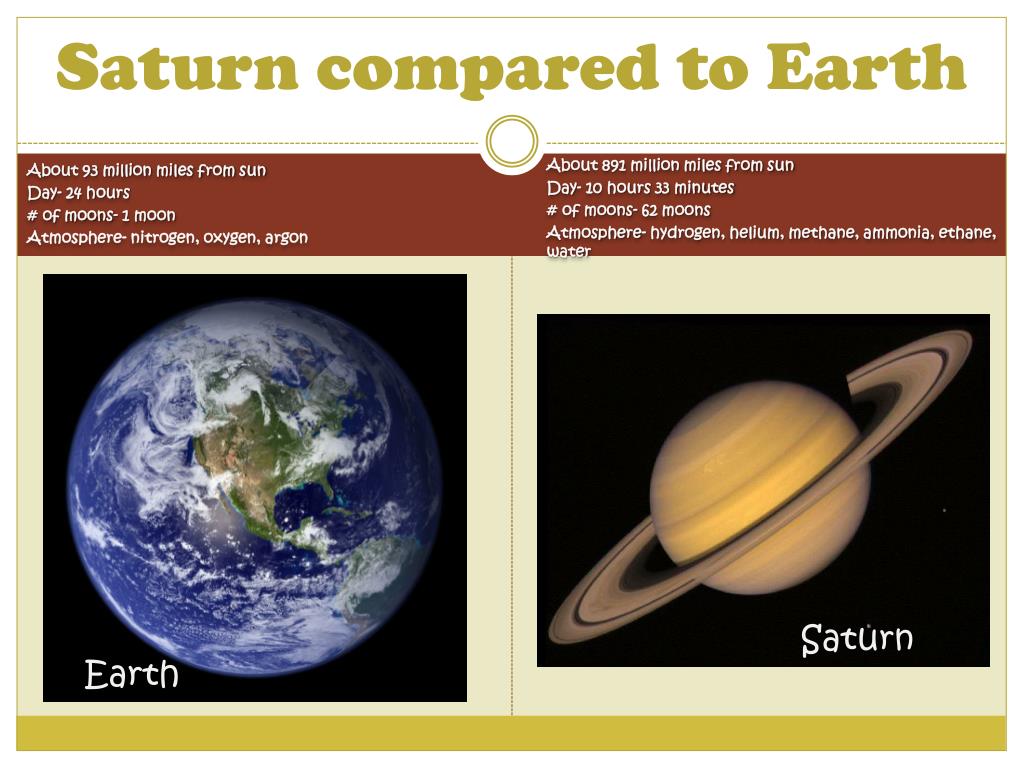
PPT Saturn PowerPoint Presentation, free download ID2194143
Saturn, which is the second-largest planet in our Solar System, is a monster in comparison to Earth. Saturn has a diameter of approximately 120.536 km / 74.897 mi and a radius of around 58.232 km / 36.183 mi. It is quite massive as well, having the equivalent of 95.16 Earth masses.
Size comparison Earth vs Saturn r/interestingasfuck
Planets Planet 1 Planet 2 Advertising Saturn vs Earth - Comparison
Saturn is the sixth planet from the Sun and the second-largest in the Solar System, after Jupiter.
It is a gas giant with a mean radius of about nine times that of Earth.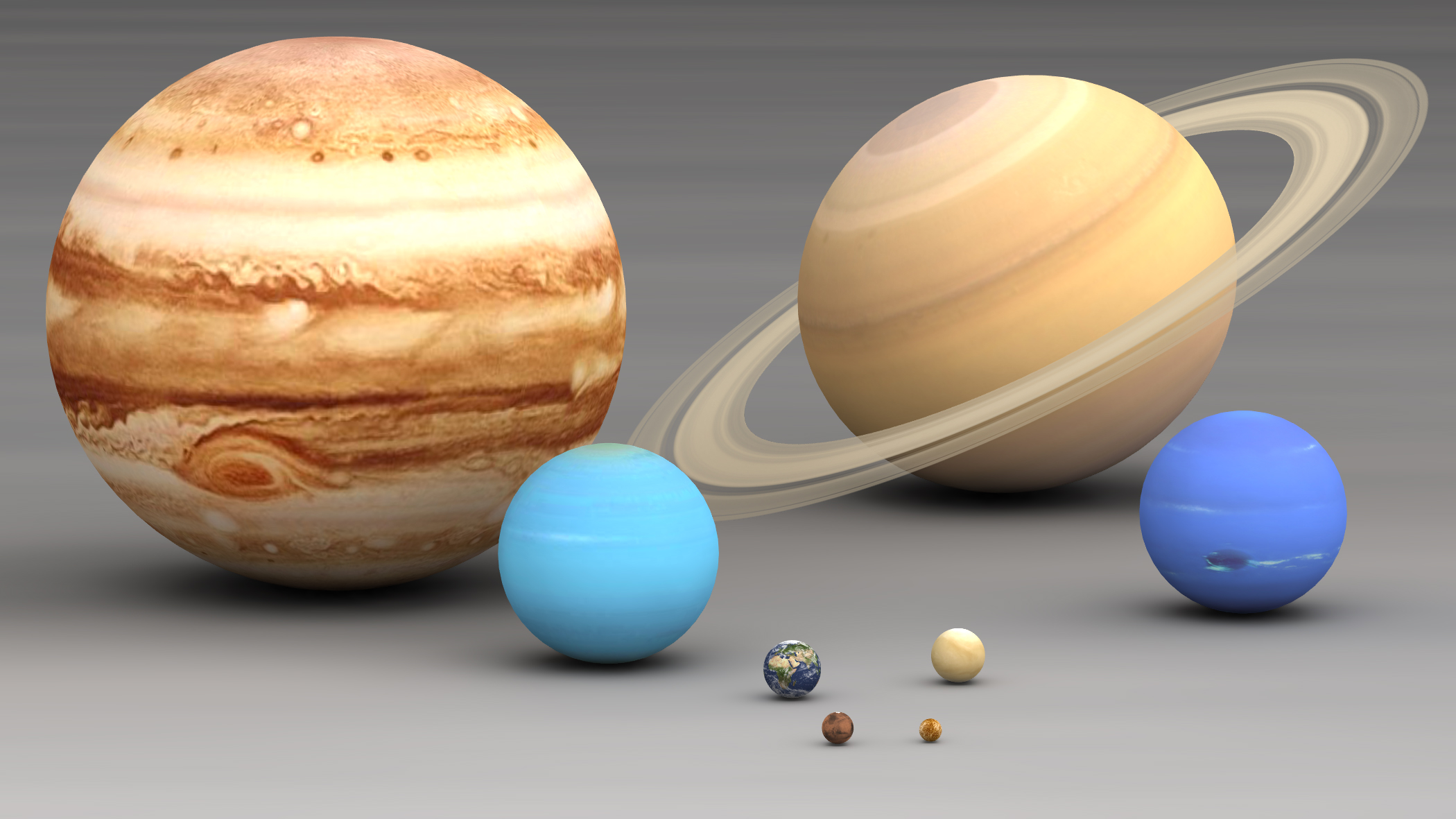
FileSize comparison.jpg
Quick Facts A day on Saturn is 10.7 hours. A year on Saturn is about 29 Earth years. Saturn has 146 moons. Saturn is a gas giant. Saturn has a radius of 36,183.7 miles, or 58,232 kilometers. Introduction Like fellow gas giant Jupiter, Saturn is a massive ball made mostly of hydrogen and helium.

Earth Compared To Saturn Illustration StockIllustration Getty Images
[/caption] Saturn is the second largest planet in the Solar System (after Jupiter), but you really need a comparison. Let's take a look at Saturn compared to Earth. First, let's just look at.
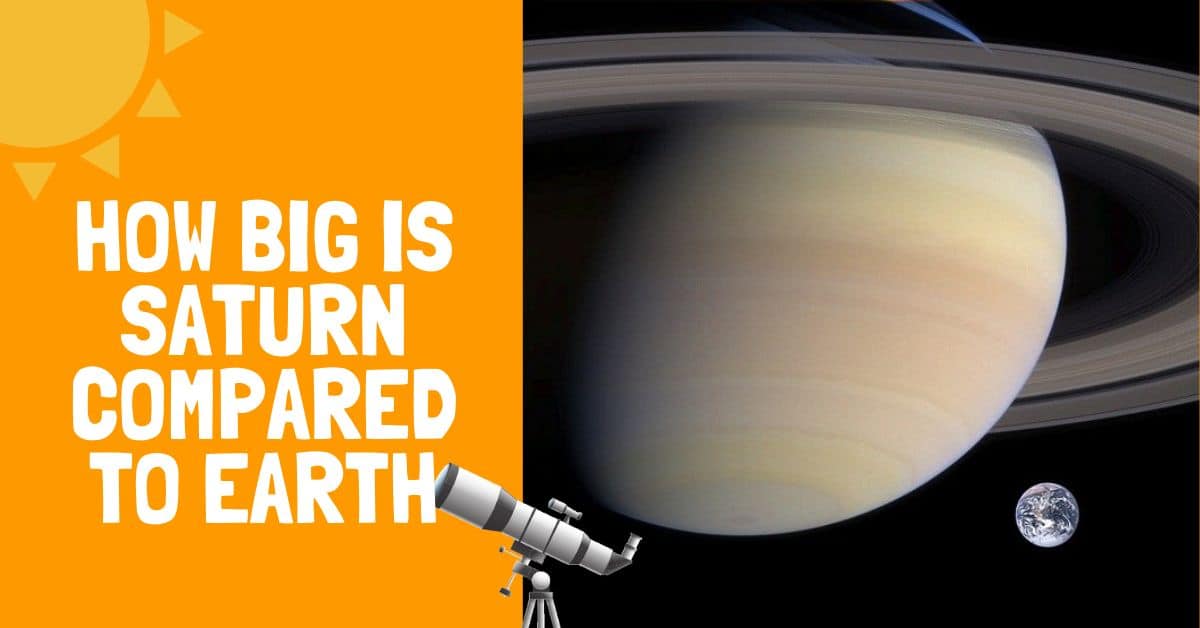
How Big Is Saturn Compared to Earth? Backyard Stargazers
Overview: Saturn's Hexagon. One of the most curious and captivating features on Saturn - an enormous spinning hexagon in the clouds at its north pole - has fascinated scientists and the public alike since our first glimpse of it in the 1980s. A trove of images and data from the Cassini probe that orbited Saturn from 2004-2017 provided.
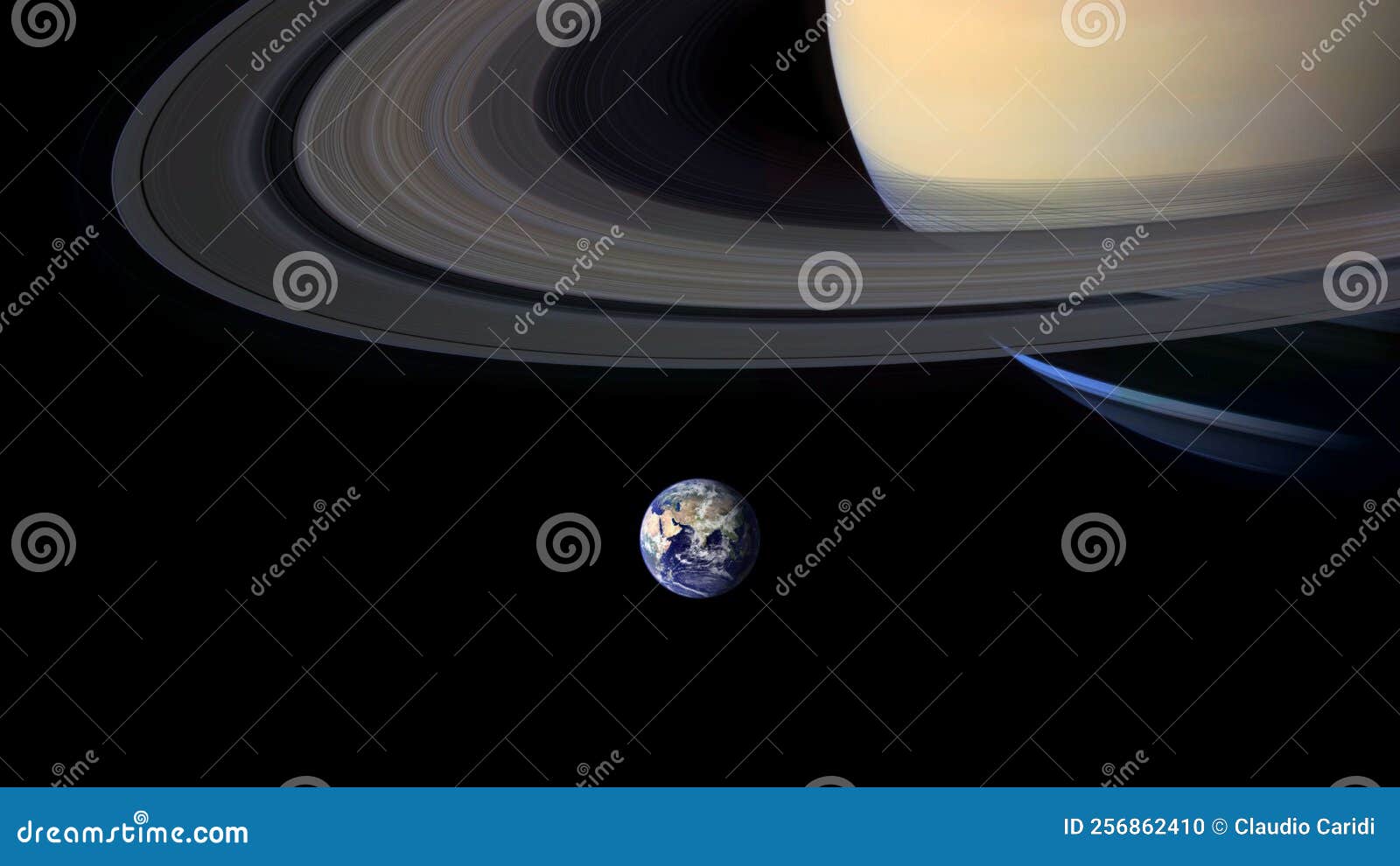
Accurate Size Comparison of Earth and Saturn. of Solar System Stock Photo Image of
Planets in our Solar system size comparison. Largest to smallest are pictured left to right, top to bottom: Jupiter, Saturn, Uranus, Neptune, Earth, Venus, Mars, Mercury.

Beautiful Solar System x K Ultra HD UHD Sistema solar a escala, Sistema solar, Imagenes de
How far is Saturn from Earth? What feature is Saturn known for? What is Saturn's largest moon? Is Saturn light enough to float?
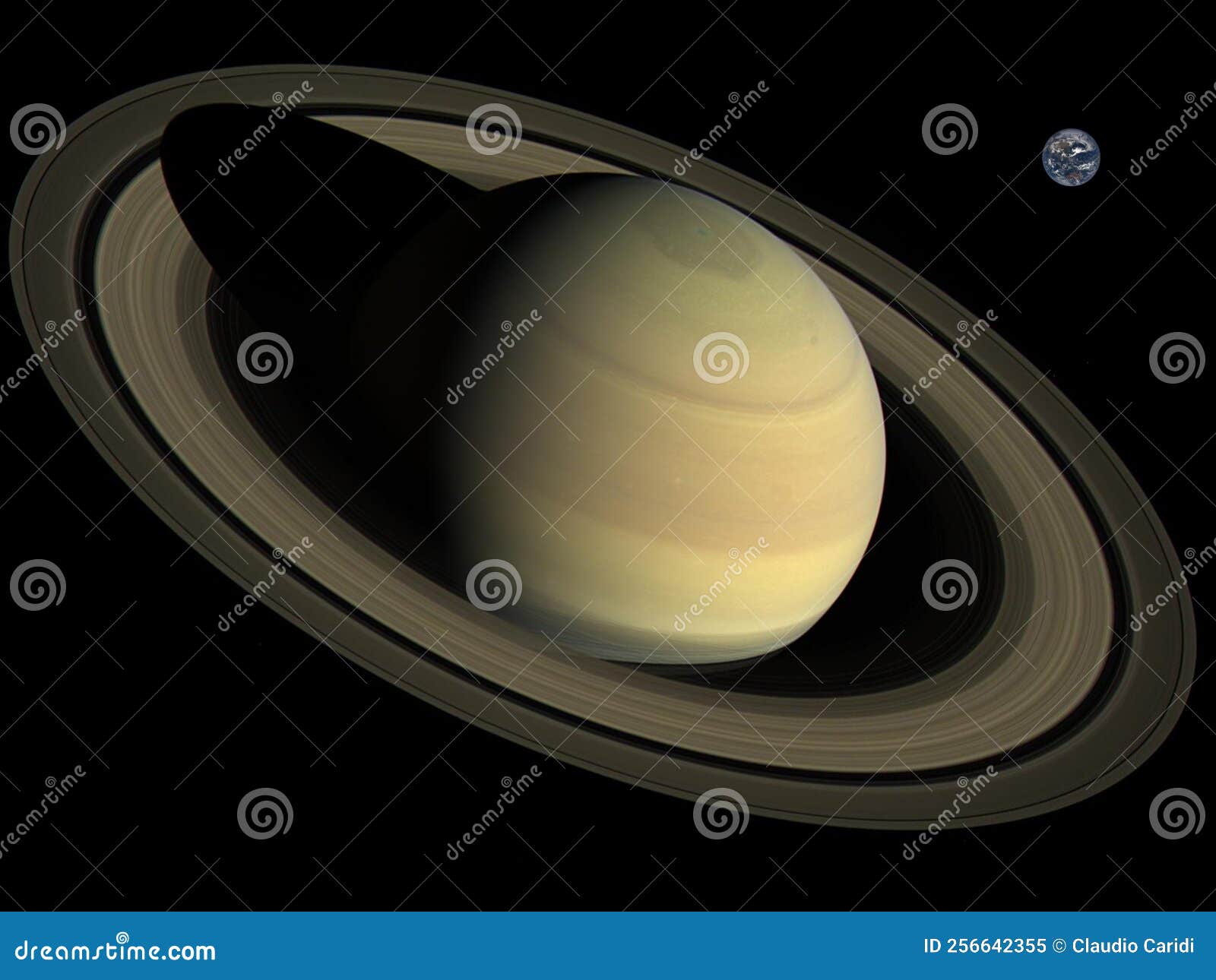
Accurate Size Comparison of Earth and Saturn. of Solar System Stock Image Image of
english Saturn is the second-largest planet in the Solar System. If Saturn and its rings were placed between Earth and Moon, they would barely fit. And that excludes Saturn's diffuse outer E Ring! The distance between Earth and Moon is 384,400 kilometers (238,900 miles) while the diameter of the A
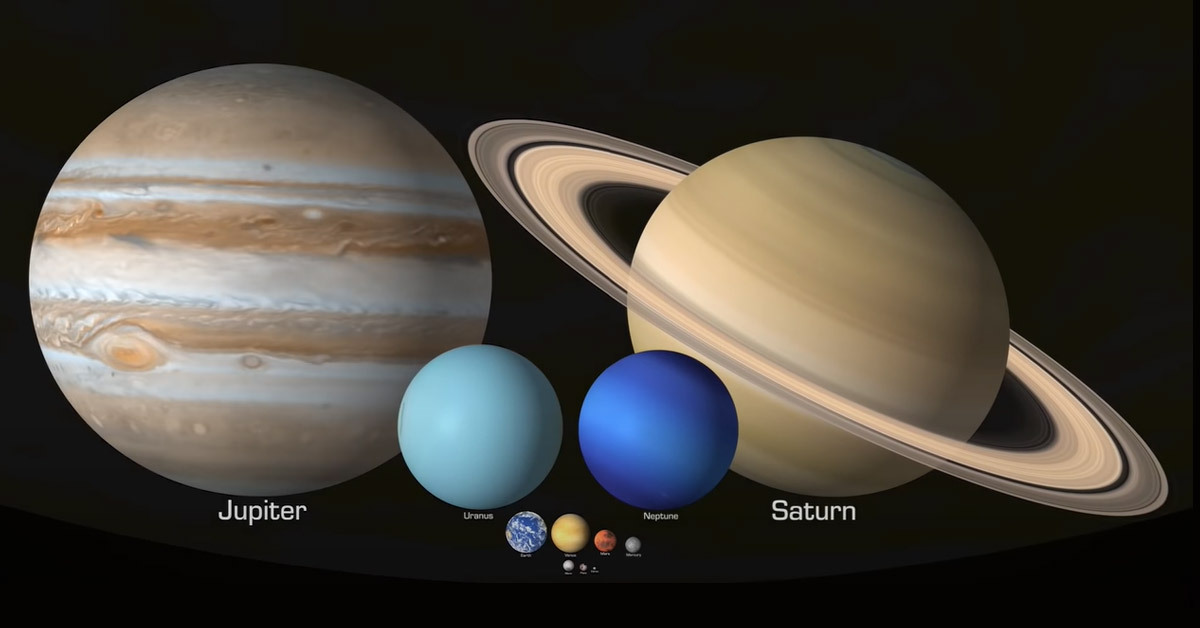
Comparing Objects in our Solar System by Rotation, Size, and More
Saturn Compared to Earth - Similarities and Differences - Living Cosmos Saturn Compared to Earth - Similarities and Differences Earth vs Saturn - two fascinating planets. Let's explore their similarities and differences in depth.

This image represents the comparison between the moons of Saturn in size and Earth with captions
A Comparison of Saturn and the Earth. Saturn is the second largest planet in the solar system, much larger than Earth. It is mostly made of hydrogen. The table below gives a comparison of characteristics of Saturn relative to Earth values. Characteristic Relative to Earth (Earth = 1) Absolute Value Mass 95 5.7x10**29 (kg).